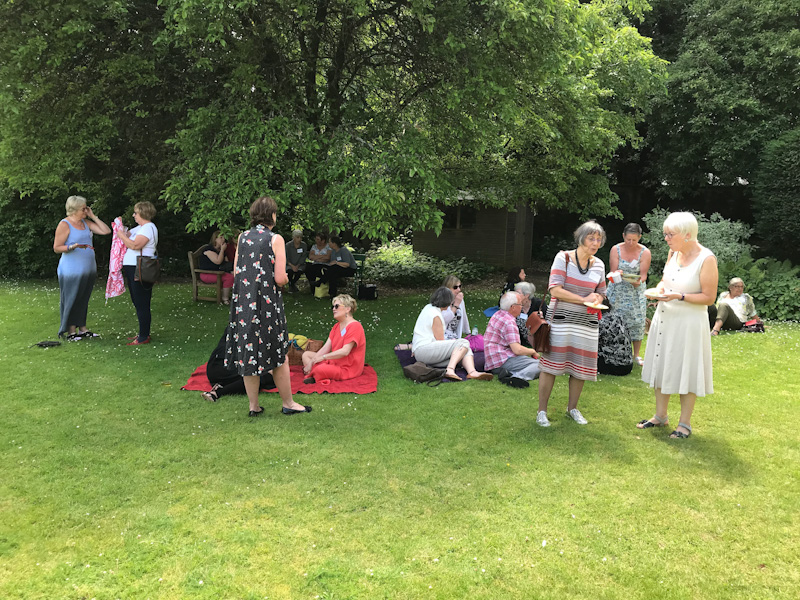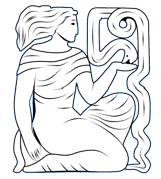| Helen Sweet, University of Oxford | The UKAHN Bulletin |
| Volume 8 (1) 2020 | |
After weeks of planning, and blessed with wonderfully sunny weather, the Cirencester Colloquium was actually both a groundbreaking break from tradition – as well as being a complete sellout! Although it was the 22nd Nursing History Colloquium, it was the first to take place at a Quaker (‘Friends’) Meeting House, and run without university support. It was also unusual – although not unique – in taking a thematic approach viz. humanitarianism in nursing’s history. This produced some excellent papers and more abstracts than we were able to accept! We also incorporated the AGM of the European Association for the History of Nursing (EAHN) to which UKAHN is affiliated, and this increased the international flavour of the papers and presenters – our thanks to all those who travelled from overseas to join us. We started with a get-together the evening before the Colloquium, for a typical English pub meal which enabled delegates to meet socially and set the friendly atmosphere that transcended the whole event.

The Keynote paper, given by Prof Susan Armstrong-Reid, University of Guelph, was on the ethics of civilian nursing in the Vietnam War. Susan pointed out the continued importance of acknowledging the ethically difficult challenges nurses face in these present times:
As the global humanitarian demands continue to rise at an astronomical rate, thousands of nurses will continue to respond to the humanitarian imperative, believing that by acting neutrally and impartially, their presence will save lives and reduce suffering. Helping people on the ground, they discover, is fraught with ethical issues and unexpected consequences. Faced with increasing risks, such as kidnapping, assault, exposure to less than ideal working conditions, and civil strife, international humanitarian nursing offers a rewarding, challenging, and often life-changing experience.
These ideas were actually explored throughout the Colloquium which chronologically spanned a period encompassing Waterloo in 1815 and the forms of assistance offered to the Waterloo wounded, through to Catholic missionaries who were involved in the combination of health care and conflict in sub-Saharan Africa in the latter part of the twentieth century. The latter looked specifically at the missionaries’ conflicting identities, whilst the former asked whether the ‘Lady’ nurse was first seen in action in Brussels in 1815, and did she enter the public consciousness from this time onwards? Dr Carol Acton also spoke on constructing nursing’s identity, focusing her research on the early months of the First World War.
Humanitarianism in response to armed conflict was inevitably an overriding theme running through many of the papers including: nurses in Ravensbrück concentration camp, British nurses of the First World War and their dealings with the Ministry of Pensions, and a group presentation on ‘Humanitarianism, Nursing and the Spanish Civil War’.
Prof Janet Hargreaves gave perhaps the most intriguingly titled paper: ‘“Death beautiful as sleep, death as ghastly as could be”: Molly Murphy in Spain and London’, and several other papers also took the approach of looking at humanitarian aspects of nursing from the individual biographic approach including Ellen La Motte and Avis Hutt. This angle was encouraged by Teresa Doherty, RCN Library and Archive Service, who gave a panel presentation showing us where and how ‘humanitarian nursing’ makes an appearance in the RCN Library and Archive (LAS) collection.

The overriding emphasis (as always with our Colloquium) was on research work in progress, and this was no exception, therefore we always hope that presenters gain from suggestions and constructive criticism. It is also intended to present an opportunity for networking between researchers, and this would seem to have been achieved according to the ‘buzz’ between sessions and at the post- colloquium dinner!
